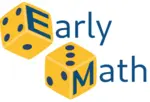EarlyMath: Mathematical Development and the Impact of Interaction Quality in Early Childcare

(Funded by the German Research Foundation [DFG ])
Project lead: Dr. Anja Linberg1, Dr. Simone Lehrl2, Dr. Dorothea Dornheim3, Prof. Dr. Sabine Weinert3, Prof. Dr. Hans-Günther Roßbach3
Research assistants: Franka Baron1, Johanna Klemm3, Nadine Besser (née Michels)3, Elisabeth Stenzel (11/2021 bis 06/2022)3
1 German Youth Institute Munich (DJI)
2 Pädagogische Hoschule Weingarten
3 University of Bamberg
Project duration: 01/2020 – 12/2022
Mathematical competences of children vary widely even at an early age of three. These differences seem to be relatively consistent. A number of studies suggest that four-year-old children have already developed comparatively stable mathematical competence patterns, which cannot be compensated by regular preschool or school attendance. Since the early mathematical competences predict the later mathematical development - even more than general intelligence - this points to the importance of mathematical competence development already at an early age.
Initial studies in this research area show that mathematical competences of preschool children are influenced in particular by interactions with educators. In addition to general interaction behavior (e.g. emotional support and stimulation), mathematical-specific interactions (e.g. naming quantities, numbers or relationships) also play a major role.
Despite the importance of the early mathematical development of children, there are few studies that focus on the influence of ECEC quality aspects on early mathematical competence development. The EarlyMath project therefore focuses on the development of children from the age of two years and investigates the relationships between global and domain-specific interactional behavior of preschool teacher and the early development of mathematical competences up to the age of four. The implementation of an intervention-based approach should also allow conclusions to be drawn about relevant factors that influence early mathematical development and provide clues for future interaction design in the U3 range.